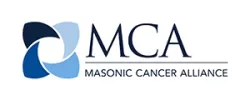AONN+ Blog
The Nurse Navigator's Role in Preventing Medical Legal Issues Associated with Breast Cancer Diagnosis and Treatment: Part 2
This article continues our discussion of issues that can result in a medical malpractice case regarding breast cancer. Though not an exhaustive list, it summarizes (when combined with part 1) the most common reasons why a breast cancer patient or family member on behalf of the patient would pursue legal action against a provider.
The Nurse Navigator's Role in Preventing Medical Legal Issues Associated with Breast Cancer Diagnosis and Treatment: Part 1
In case you are not aware, the most common medical malpractice issue medical providers deal with today relates to breast cancer care—specifically, misdiagnosis, delay in diagnosis, and/or failure to follow standard of care. So it is probably not a surprise that the nation has a shortage of breast imaging radiologists and soon will be facing a shortage of breast oncologic specialists as well.
The History of Navigation: Where Did It Come From?
In the late 1980s, changes were made to this method of monitoring care and utilization management (UM) was introduced. UM was the evaluation of the appropriateness, medical need, and efficiency of healthcare services, procedures, and facilities according to established criteria or guidelines and under the provisions of an applicable health benefits plan.
Knowing About and Accessing Resources for Your Patients
When navigating patients with cancer, you soon will notice the need for many support services, given that your goal is to eliminate those barriers preventing your patients from getting their cancer treatment.
The Breast Cancer Nurse Navigator's Role: Discussing Sexuality and Intimacy with Your Patients
If all breast centers had Dr Ruth as a faculty member, there would be no need to write this article. But they do not. It is important to bring up this sensitive topic early in your interactions with your breast cancer patients. Usually the first thing a woman worries about, however, is her mortality.
The Nurse Navigator's Role in Improving Clinical Outcomes and Survival
When we think about improving clinical outcomes and increasing survival of cancer, usually we are referring to the oncologists’ roles in selecting the right treatment plan, perhaps enrolling patients in clinical trials that may give them an edge over standard treatment today, or even thinking about such things as improved technology that enables healthcare providers to make the diagnosis sooner.
Ensuring Your Breast Cancer Patient Is Referred for Reconstruction Consultation
Though most women diagnosed with breast cancer are good candidates for breast conservation therapy, there remains a portion of women diagnosed who need to undergo mastectomy.
Navigating Patients Battling Metastatic Disease
When it comes to navigation, there is a tendency for us to focus on patients who will be surviving their cancer diagnosis and treatment. More and more patients with metastatic cancer, however, are surviving longer than ever before.
Addressing Psychological Support Needs in Breast Cancer Patients
Oncology nurses for decades have assessed the psychological needs of their breast cancer patients. So it is not surprising that this assessment would become an important function for an oncology nurse navigator as well.
The History of Navigation: Where Did It Come From?
If we don’t know where we’ve been, we may not understand where we are now, much less know where we are going. In the late 1970s and early 1980s, the government decided to implement major changes in how hospitals would be paid for providing inpatient care. Healthcare expenses were recognized as being out of control, even back then.
Thank You to Our Corporate Sponsors and Alliance Partners!
-

Major Corporate Sponsor
-

Patron Corporate Sponsor
-

Patron Corporate Sponsor
-

Patron Corporate Sponsor
-

Industry Relations
Council Member -

Industry Relations
Council Member -

Industry Relations
Council Member -

National Alliance Partner
-

National Alliance Partner
-

National Alliance Partner
-

National Alliance Partner
Privacy Notice | Terms of Use
© 2009- DBA AONN+ Academy of Oncology Nurse & Patient Navigators® | PO Box 563, Cranbury, NJ 08512 |
AONN+ DBA AONN+ is a 501(c)(6) organization under federal tax guidelines. AONN+ Foundation for Learning, Inc. a 501(c)(3) organization under federal tax guidelines.
AONN+ Advantage, LLC, a wholly owned subsidiary of AONN+.


